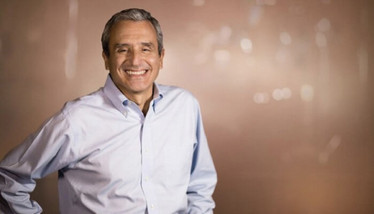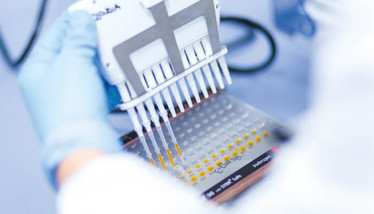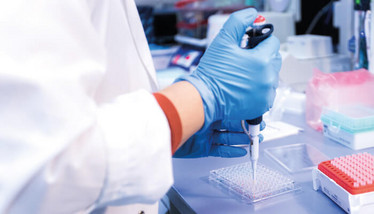
Onward in Oncology: Lessons Learned with Carlo Toniatti
Carlo Toniatti takes us on a journey from the clinic, to academia, to industry – where he spent over two decades developing anti-cancer drugs – and shares his lessons learned along the way

You can make a tremendous impact in drug development
The complexity of the oncology field is staggering, making it rather challenging but also fascinating to work in. Ultimately throughout my career, my focus has always been on working to improve the lives of patients. However, after completing my medical degree, I had to make a decision: do I pursue clinical practice or scientific research?
I initially began my career as a physician, despite having some inspirational oncology professors working in research. However, my interest in research remained strong during my time in the clinic, and I came to understand that I couldn’t progress treatment options for oncology in the way I desired while continuing to work in clinical practice. I consequently realized, when working on transcription factors, that I wanted to develop drugs – and that has been the driving force throughout my career. As a physician, I was able to make a real impact on individual patients’ lives through treatments that had already been developed - although this was only for a minority of cancer patients and the treatments often came at a cost of severe toxicity. However, I realized that as a research scientist, I could help more patients by contributing to the development of novel, more efficacious and better tolerated drugs against cancer types for which there was no effective therapies.
Specialization isn’t always best
My path to industry is an interesting tale – and I owe a lot to a brilliant scientist named Riccardo Cortese. Riccardo was an Italian, from Naples like myself, who was leading the Gene Expression Programme (now the Genome Biology Unit) at the EMBL (European Molecular Biology Laboratory) site in Heidelberg. I was keen to join him so I went for an interview. It was the longest interview of my life – I was there for almost an entire day. In the end, he told me, “Carlo, I like you, but I can’t hire you now.” Naturally, I was disappointed. But it turned out he was in discussion with Merck Sharp & Dohme (MSD) to join as the director of a novel R&D site that was being built in Pomezia (Rome), Italy - he didn’t want me to join and then have to deal with his departure soon afterwards. Eventually, he accepted an offer from MSD and then asked me to join him at the institute in Rome. The process taught me a lot about patience and compassion; and I have very fond memories of Riccardo Cortese, who passed away in 2017.
When I joined MSD, I really felt that it was my mission to make drugs. I started working broadly on cytokines and this led me to get involved in a project generating antagonists for interleukin 6, which multiple myelomas require for survival.
There’s so much that you can learn within a big pharmaceutical company – things you can’t really pick up anywhere else. Working in such a large organization means you see everything. With all of the different therapeutic areas under one umbrella, if you work hard and find the right mentor and the right team, you can learn a great deal. I was lucky to find all of those things.
This period built the foundations for the rest of my career. In those days, you could start a project at the beginning and see it, even lead it, through to the very end. You could go from target identification through to phase Ib-II of clinical development – covering the entire spectrum of drug discovery and development. Today, things are a little trickier because everything is specialized. Now, there will be a specialist in target identification, another in lead identification, one for lead optimization and another for IND enabling studies and so on. Personally, I’m grateful that I had the opportunity to see the wider perspective on these projects, and I feel it has served me well over the years.

Academia and industry can complement each other
I started at MSD at the bottom rung of the ladder in 1990 and worked my way up to become director of the oncology site in 2007. MSD then made the strategic decision to shut down the site and I was offered the chance to relocate to Boston, where my family and I spent three years. I truly enjoyed my time there but when an opportunity arose at the esteemed MD Anderson Cancer Center, I couldn’t turn it down – the challenge was irresistible!
The idea was to create an environment in which academics and those working in industry could work on drug discovery and development without spending time teaching, writing grants and applying for funds. I thought this was a great idea. Academics sometimes imagine that individuals working in industry only care about money, and that they don’t understand how to analyze targets or run trials properly. On the flip side, people working in industry sometimes see academics as pie-in-the-sky thinkers who lack the rigour that is required to develop an approved therapy. Both of these visions are caricatures, but they do reveal the positive attributes that are unique to both groups. Drug development can be more fruitful when we combine the creativity of the academic world and the industry culture of clear milestones, precise goals and the focus on deliverables.
MD Anderson successfully created such an environment and I think it worked exceptionally well. We developed four drugs during my time at MD Anderson that are now in the clinic. The culture of collaboration was fantastic, and you could tell everybody was passionate about the patients above anything else.
Don’t underestimate the importance of emotional intelligence
I left MD Anderson in 2018 and came back to Italy. The next step for me was to return to the old MSD site, which is now IRBM, an independent partner research organization. I always had a feeling that I might return, although I have a lot more responsibility now – previously I was Head of Oncology, but now I’m the Chief Scientific Officer. In this role, there is an important focus on managing people, as well as the research. You need a degree of emotional intelligence to do that well. It’s vital to have everyone working together, concentrated on a common objective. Despite that, you also have to understand that people are different and have different perspectives. Some people want A and some want B - you have to be ready for that. It’s important to remember that happy scientists are good scientists!
I enjoy working at IRBM because of the great culture we have here. We are really committed to a very high scientific standard and to “our” patients in the broader sense. These are the values that should drive people working in drug discovery and development. We work hard with the final goal of helping advance drugs to patients: solving issues, delivering on tasks and advancing programs even when they are extremely challenging. Our partners frequently refer to us as “creative problem solvers”, and I like this definition because these three simple words define our strength. It’s not just about mere execution but also hard work and commitment that is combined with creativity.

Remember who you serve
There’s no doubt that the progress has been remarkable over the past three decades in oncology research – with the advent of targeted therapies and, more recently, immunotherapy – but that progress is measured through the positive results for patients. When it comes to rewarding good work and ethically conducting research, researchers must always keep in mind who they serve.
Serving patients should extend beyond clinical research, to ensure that the public have the necessary knowledge to lead healthy lives. There is more we – both industry and more widely, healthcare – could be doing to prevent cancer through a greater awareness of healthy eating and exercise. At the same time, I think most people are aware of the link between smoking and lung cancer and have a generic notion that high intakes of red and processed meat can increase the risk of colorectal cancer. But how many people around the world are aware of the link between the use of tanning beds and melanoma incidence?
Appreciate progress without getting complacent
I’ve been lucky enough to see several drugs go from the discovery phase all the way through to phase III – and even become approved products. I’ve had conversations with many people over my career, talking about how their wives, husbands, children or parents are doing well after being treated with a drug we’ve helped develop – it really drives home why we do what we do. I do wish I could go back in time and treat patients with the drugs that are now available. Of course, that can’t be done, but thinking about it gives me a perspective on the time spent in oncology and makes me appreciate how much better patient quality of life is when compared to 30 years ago. We’re still only scratching the surface of what’s possible with oncology treatment, and I’m excited to see how the field develops over the next 30 years.



















